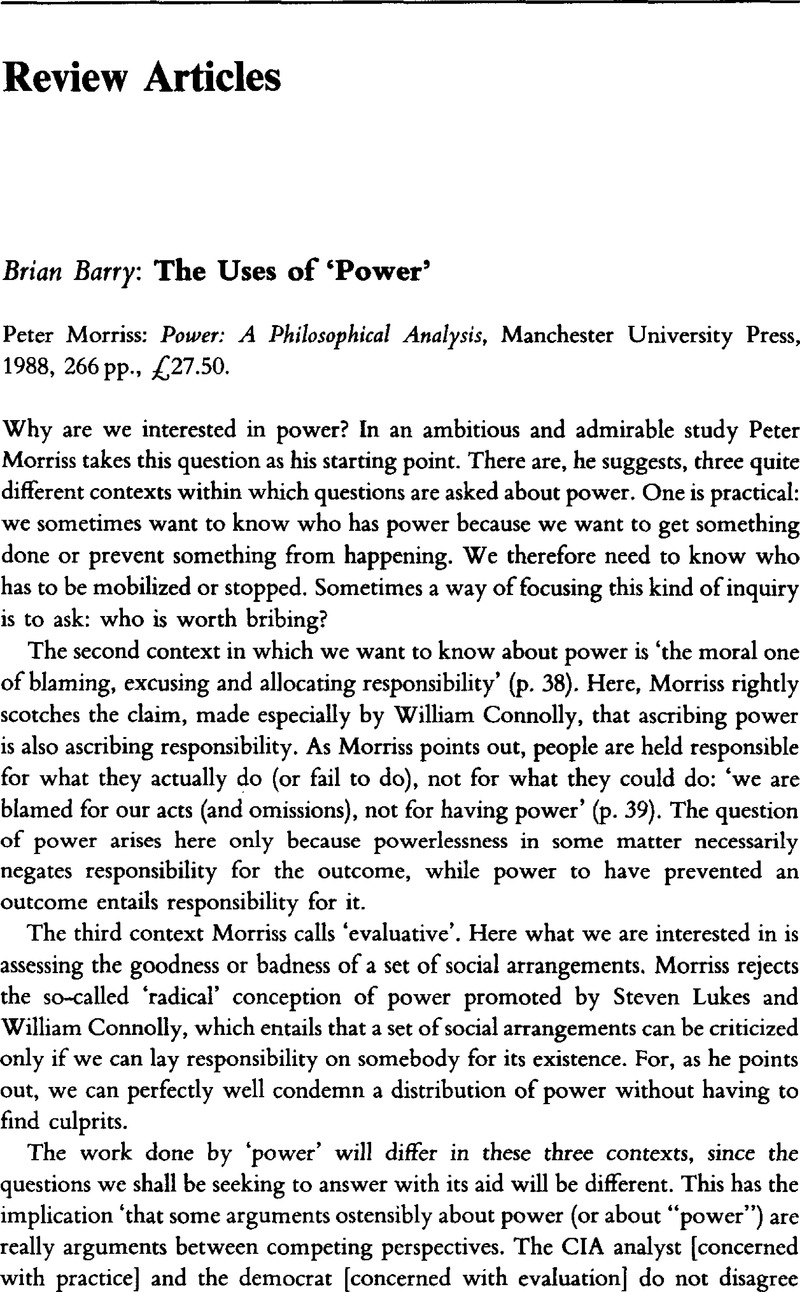Article contents
Abstract

- Type
- Review Articles
- Information
- Copyright
- Copyright © Government and Opposition Ltd 1988
References
1 Barry, Brian, ‘Is it Better to be Powerful or Lucky?’ Part II, Political Studies, 28, 1976, pp 338–52.Google Scholar
2 Unfortunately, having made it clear that the EPW index includes success that falls outside the scope of ableness (pp. 171–2) Morriss goes on to call it an index of ableness (p. 179), and indeed entitles the chapter in which the EPW index is developed ‘Measuring Ableness’. I shall assume, however ·, that the meaning of ‘ableness’ should be restricted to include what Morriss calls ‘active power’ (see below).
3 Polsby, Nelson W, Community Power and Political Theory, 2nd ed., New Haven, Yale University Press, 1980, p. 208.Google Scholar
- 3
- Cited by


